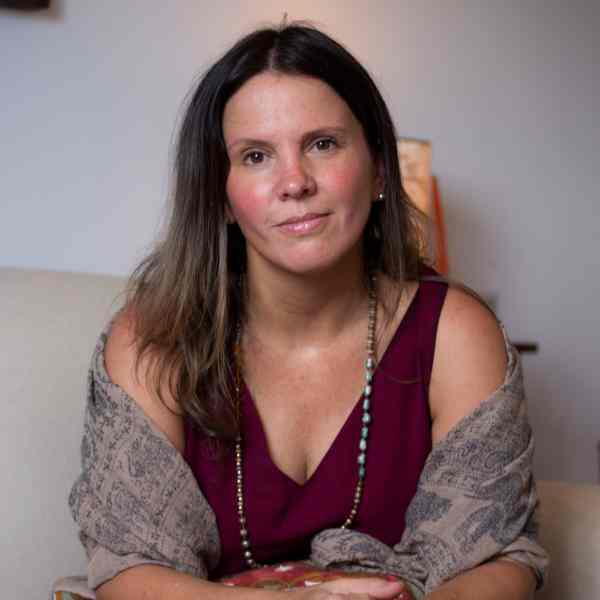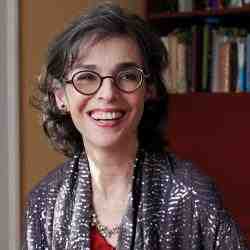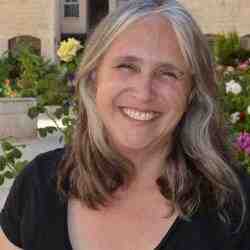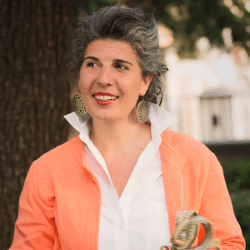Introduction
Magdalena Palau builds institutions that allow families to better care for children who are legally separated from their families. She uses personal and family psychology to keep children anchored in the loving community from which they come.
The New Idea
While children are sometimes taken in by extended families, foster care is not a familiar concept in Paraguay. At the same time, Paraguay is a family-centered society with considerable sympathy for children befallen by misfortune. Magdalena expands on this fundamental compassion to gain acceptance to introduce temporary care as a first step in caring for children who are forced out of their homes. A critical element of her approach is that a child's foster care take place in his or her own community and in a family with economic circumstances similar to the family from which the child originally came. Magdalena builds gradually on the concept of extended family, first placing the abandoned child with a family by offering extra resources for care and auxiliary needs, then building a network of additional individuals, groups, and families to lend care, depending on people's training and ability, and, lastly, develops a long-term situation strategy, usually depending on a relative or friend of the child's surrogate or foster family. Her strategy relies on keeping children in their own homes, despite where their house is, and on cultivating a sense of belonging and family so that a child can maintain a sense of permanency and develop self-esteem.
The Problem
Until 1997, Paraguayan adoption authorities were overwhelmed by foreign families, especially from the United States. For a long time, the U.S. Congress has pressured authorities around the world to allow American families to adopt children in need. European embassies have also aggressively pressed Paraguayan authorities to process their families' adoption claims. As a result, thousands of children leave Paraguay every year and their whereabouts and status are never clearly known. To address this problem, the Paraguayan legislature passed a 1997 law barring private adoption and laid out a process that requires authorities to find new living situations within Paraguay for children who are in the custody of the state. Only children who could not be placed through traditional means would be eligible for international adoption. While this law gave authorities relief from the onslaught of foreign requests, it also presented them with a fresh set of issues. Practically speaking, children who became the custody of the court were either adopted, by which they were usually relocated to an unfamiliar situation with little regard for their social needs or the surrogate family's rights, or placed in a semi-institutional setting in which they live with a number of displaced children with little follow-up support from the authorities. In either case, the children did not receive the support and continuity they require to grow up happily and healthily.
The Strategy
Magdalena uses radio and television to create public interest in the idea of temporary foster care. She presents informational programs outlining her project and methods, responds to all offers of assistance, and trains foster families about the needs and background of the children they receive before the formal transition begins. She links the network of temporary foster families so that they can share their experiences, promote best practices, and develop a local support system. The foster families also take up much of the responsibility to publicize the program through word of mouth in their community. A second element in Magdalena's strategy ensures the government's cooperation, so that the surrogate families receive a monetary stipend to feed and clothe their foster children. Unlike other government-sponsored programs, Magdalena's project uses the training program to screen out questionable claims of interest motivated by financial need. The third element of her strategy is to rally the rest of the community around the child, building a permanent support system for their social, emotional, and educational needs. The foster families or a member of the child's extended family usually adopts permanently during this step of the process, as much of the perceived financial and time hindrance is diffused by the role of the community at large. With the idea of temporary foster care beginning to take hold in Paraguay, Magdalena is helping traditional foster institutions find homes for their children through her process. She is also spreading her model through child development organizations throughout South America.
The Person
Magdalena's father was trained as a sociologist and works with peasant organizations and her mother actively works with political prisoners. They divorced when Magdalena was still young and her father re-married, but that marriage also broke up, leaving Magdalena with much of the responsibility of raising three children from her father's second marriage. After receiving a degree in psychology, Magdalena worked in private clinics and went to work at the newly formed National Adoption Center in l998. Her main work was with poor families who were interested in adopting a child. She quickly learned the hurdles and frustrations of the adoption process and began to work out and test her alternative project. She left the Adoption Center to set up an organization whose initial focus will be setting up a nation-wide system of temporary foster care for babies and children who are now, or will become, wards of the state.




